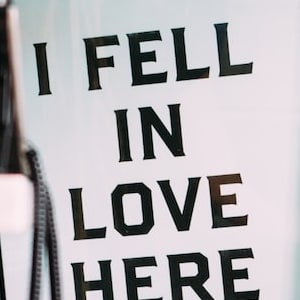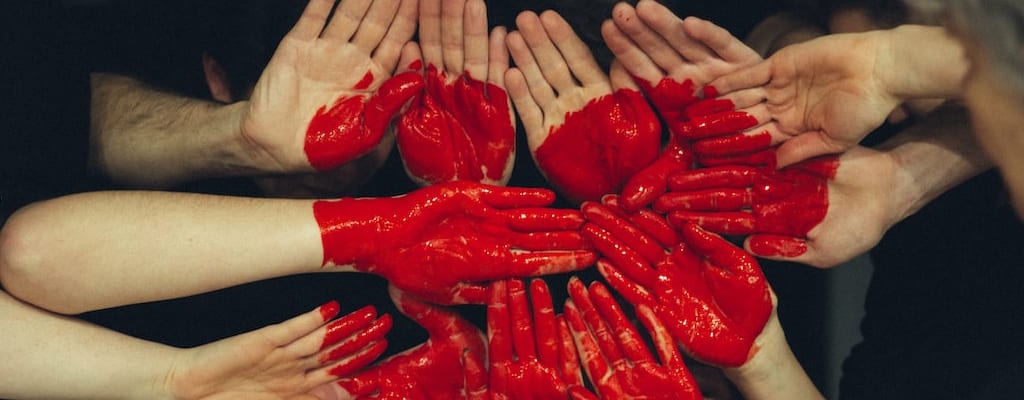happily ever after: Idiom Meaning and Origin
What does ‘happily ever after’ mean?
The idiom "happily ever after" refers to a fairy-tale ending where everything turns out perfectly and all the characters live happily. It signifies an idealized and perfect ending to a story or situation.

Idiom Explorer
An idiom that means the final or last gathering or collection of something or someone, often used to express the end or conclusion of a particular event, activity, or period of time.
The idiom "it's all good" is used to express that everything is okay or there are no problems. It is often used to reassure others or to indicate that there is no reason to be worried or concerned.
The idiom "good life" refers to a state of living that is comfortable, enjoyable, and fulfilling. It implies a life filled with happiness, success, and contentment.
An idiom that describes a situation where something unexpectedly turns out to be successful or advantageous, despite initial expectations. The outcome is usually positive, but may also involve a degree of unpredictability or chaos.
The idiom "for good and all" means to do something once and for all, or to fully complete or resolve a situation. It implies a final and decisive action, leaving no room for further discussion or uncertainty.
The idiom "for good" means permanently or forever. It is used to indicate that something has come to an end and will not be repeated or resumed in the future.
Fool's paradise is an idiom that refers to a situation or state where someone is happily deceived or living in delusion, unaware of the reality or impending trouble.
The idiom "ever after" is used to describe a state or condition that continues indefinitely, often referring to a happily ever after ending or a lasting outcome or consequence.
The idiom "end of" is used to emphasize that something is final or absolute, with no possibility of further discussion or negotiation. It is often used to express a strong opinion or to indicate a decision that is not open to debate.
The idiom "come up roses" means to have a successful or positive outcome. It is often used to describe a situation where everything goes well and results in a favorable outcome.
The Ultimate Fairytale Ending
The idiom *ever after* is often used in conjunction with the phrase *happily ever after* to emphasize the everlasting nature of a blissful ending. It suggests that the happiness and contentment experienced by the characters in a fairy tale will extend throughout their lives, without any negative or unfortunate events occurring. This idiom signifies an idealized version of a perfect outcome, where everything falls into place and remains that way indefinitely.
The idiom *all ends up* is related to the concept of *happily ever after* as it implies the complete and ultimate resolution of a situation. It suggests that all loose ends are tied up, all conflicts are resolved, and everything works out for the best. In the context of a fairy tale, it signifies that all the characters' problems and challenges are overcome, and they achieve their desired outcome with no lingering issues or complications.
In some cases, things can actually *go horribly right*. This phrase, which may seem contradictory, reflects the idea that a situation or outcome that initially appears negative or disastrous unexpectedly turns out to be positive. It suggests that sometimes the unconventional or unexpected path can lead to a better result than anticipated. This idiom challenges the conventional narrative structure and highlights the unpredictability of life and the potential for unexpected and surprisingly positive outcomes.
The idiom *good life* is closely associated with the notion of *happily ever after*. It represents an ideal and fulfilling life characterized by happiness, prosperity, and contentment. It conveys the idea that the characters in a fairy tale or story will enjoy a life free from worries, hardships, or unhappiness. This idiom encapsulates the desire for a life full of joy and fulfillment, where all the characters' dreams and aspirations come true.
However, as cliché as it may sound, all good things must *come to an end*. This idiom suggests that even the most wonderful and perfect situations or experiences eventually reach a conclusion. It acknowledges the impermanence of happiness and reinforces the idea that nothing lasts forever. In the context of *happily ever after*, this idiom serves as a reminder that while fairy tales may end with a perfect ending, real life is characterized by change and impermanence.
The idiom *come to an end* implies that the happiness and contentment experienced by the characters in a fairy tale is not infinite, but rather has a predefined endpoint. It acknowledges that all stories, no matter how ideal, must eventually reach a conclusion. This idiom adds a touch of realism to the concept of *happily ever after*, reminding us that life is a journey with beginnings and endings, and that happiness can be found even in the midst of change and uncertainty.
So, next time you encounter the phrase *happily ever after*, remember that it represents more than just a fairy tale ending. It symbolizes an idealized outcome, a resolution with no loose ends, and the potential for unexpected positive outcomes. It also reflects the desire for a life of fulfillment and joy, while acknowledging the impermanence of happiness and the inevitability of change. *Happily ever after* is not just a storybook ending, but a reminder that happiness can be found, even as life continues to unfold.
Example usage
Examples of how the idiom "happily ever after" can be used in a sentence:
- They got married and lived happily ever after.
- Once the hero defeated the villain, the kingdom was restored and everyone lived happily ever after.
- The couple faced many obstacles, but in the end, they found true love and lived happily ever after.
More "Fairytales" idioms
We missed the mark - nothing found.



